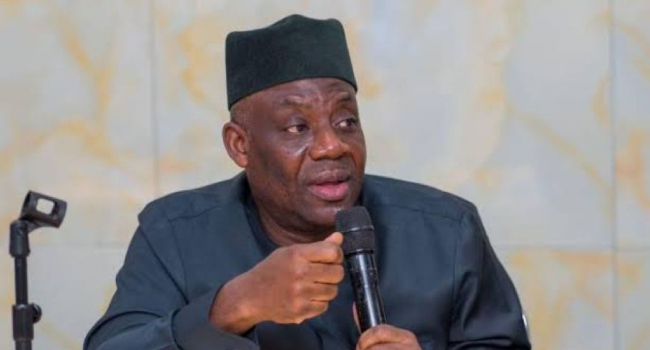The Federal Government has announced a 50 per cent increase in scholarship grants for Nigerian students across all tertiary education levels, in what has been described as the most ambitious overhaul of the national scholarship programme in over a decade.
Minister of Education, Dr. Olatunji Alausa, disclosed this on Wednesday via a statement posted on his official X (formerly Twitter) handle. He said the reform is aimed at reducing the financial burden on students and families, while ensuring wider access to quality education in line with President Bola Ahmed Tinubu’s Renewed Hope Agenda.
Through the Federal Ministry of Education, the Federal Government has significantly increased scholarship grants across all academic levels, easing the financial burden on students and families, while enhancing access to quality education for all. This initiative is a key pillar of President Bola Ahmed Tinubu’s Renewed Hope Agenda, which places education at the heart of Nigeria’s transformation into a $1 trillion economy,” Alausa stated.
Under the revised scheme, PhD students will now receive ₦750,000 per annum, up from ₦500,000; Master’s students ₦600,000 (formerly ₦400,000); while undergraduates, HND, and NCE students will now get ₦450,000 (from ₦300,000).
The Minister emphasised that the restructured programme prioritises merit, equity, and relevance to national development goals, especially in fields like Science, Technology, Engineering, Mathematics, and Medical Sciences (STEMM), as well as vocational education.
Alausa further disclosed that the Bilateral Education Agreement (BEA) scholarship scheme had been overhauled, with funds previously allocated for new international awards redirected towards two new strategic scholarship categories under the national programme. The first targets students in public polytechnics pursuing STEM and vocational training, with a ₦1 billion allocation, while the second supports students studying Medicine, Dentistry, Nursing, Pharmacy, and Physiotherapy in public universities, also with ₦1 billion.
Additionally, the programme introduces a revised allocation framework: 50 per cent of scholarships will go to undergraduate students, 25 per cent to Master’s students, and another 25 per cent to PhD candidates. Within each category, 70 per cent of awards will be reserved for STEMM disciplines, while the remaining 30 per cent will cover Social Sciences. In a deliberate move towards inclusivity, five per cent of all scholarships are reserved for students with disabilities.
The government expects over 15,000 students to benefit from the Nigerian Scholarship Award, Education Bursary Award, and the restructured BEA scheme in the 2025–2026 academic cycle.
Dr. Alausa noted that the implementation would be overseen by the Federal Scholarship Board, in collaboration with an Inter-Ministerial Committee chaired by the Permanent Secretary of the Ministry. The committee includes representatives from the National Assembly, Federal Character Commission, Ministry of Women Affairs, and other key institutions to ensure transparency and accountability.
“With a total budget of ₦6 billion allocated for the 2025–2026 cycle, this reform is more than a policy it is a bold national investment in our youth, our future, and our collective prosperity,” Alausa remarked.
“We are not just funding education; we are building the human capital foundation for Nigeria’s long-term success. I remain fully committed to ensuring this renewed scholarship programme delivers on its promise, and I call on all stakeholders, students, parents, institutions, and the broader public to work with us in realising the full potential of this transformative initiative,” he added.






















